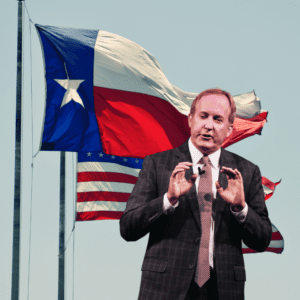Kentucky Gov. Beshear Promotes Cannabis Efforts with VP Harris

Gov. Andy Beshear Responds to Speculation About Potential Presidential Bid, Highlights Cannabis Reform Efforts
As speculation mounts about potential alternatives to President Joe Biden on the Democratic presidential ticket, the governor of Kentucky has responded to reports about his own potential candidacy and was quick to promote his work with the administration on marijuana reform.
Speculation and Response
Gov. Andy Beshear (D) spoke to CNN on Tuesday about rumors that he’s being eyed as a potential running mate if Vice President Kamala Harris becomes the party’s presidential nominee. While he largely waved off the speculation, he said he’s been “happy to work with her on a number of initiatives, including decriminalizing marijuana.”
Promoting Cannabis Reform
The cannabis comment was the governor’s first policy-related response to the question about the potential nominee shakeup, which follows the first presidential debate between Biden and former President Donald Trump in which the incumbent drastically underperformed.
“Who would have ever thought on their bingo card you’d end up with the vice president, the governor of Kentucky and Fat Joe at an event in the White House pushing for something that needs to happen?” Beshear said, referencing a roundtable he participated in with Harris and the rapper in March to hear from federal marijuana pardon recipients.
While the governor touted work on “decriminalizing” marijuana in the CNN interview—and Harris did call for legalizing cannabis at the White House event—so far the administration’s reform actions have been mostly limited to pardons and a push to reschedule the plant in a way that would not remove criminal penalties.
Beshear’s Cannabis Reform Efforts
Beshear has been vocal about his support for cannabis reform, signing a medical marijuana legalization bill into law in Kentucky last year and, before that, taking executive action to legally protect patients who possess medical cannabis purchased at out-of-state licensed retailers by exercising his unilateral authority to grant pardons to anyone who meets certain criteria.
After Biden issued his first pardon proclamation in October 2022, Beshear said he was “actively considering” possible marijuana clemency actions the state could take and encouraged people to petition for relief in the interim. In 2021, he also talked about his desire to let Kentucky farmers grow and sell recreational cannabis across state lines.
As of this month, Kentuckians are also now officially able to submit applications for medical cannabis business licenses under the legislation the governor signed into law. The governor announced the application launch last week, touting the state’s efforts to speed up the implementation timeline.
Legislative Efforts in Kentucky
Also, this January, Kentucky lawmakers filed marijuana legislation with a notable bill number: HB 420. If passed, it would have legalized and regulated cannabis for adults 21 and older, though it did not advance in the state’s Republican-controlled legislature this session.
A more limited legalization measure, HB 72, was introduced in January by Rep. Nima Kulkarni (D). It would end all penalties for simple possession and use of marijuana by adults 21 and older and also allow adults to grow a small number of cannabis plants at home. Commercial sales, however, would remain prohibited. It too died, however.
Last year, Kulkarni introduced a measure that would have let voters decide whether to legalize use, possession, and home cultivation. The lawmaker previously introduced a similar noncommercial legalization proposal for the 2022 legislative session.
As the political landscape continues to evolve, Gov. Andy Beshear’s involvement in cannabis reform highlights a significant aspect of his policy efforts. Whether or not he becomes a key figure in the upcoming presidential race, his commitment to marijuana reform remains a focal point of his tenure. With ongoing efforts to legalize and regulate cannabis in Kentucky, Beshear continues to advocate for progressive changes that align with broader national trends.











